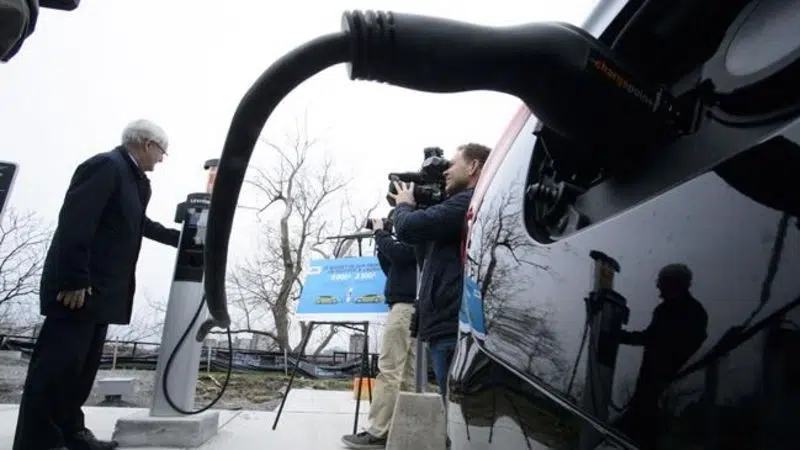
Buying an electric car becomes cheaper as federal rebates kick in
OTTAWA — Federal rebates to encourage Canadians to buy electric cars took effect Wednesday, shaving as much as $5,000 off the purchase prices of electric cars.
The rebates were announced in the last Liberal budget and fully electric cars that have starting prices of less than $45,000 are eligible for the full $5,000 rebate. Plug-in hybrids, which combine electric power with traditional combustion engines, can get up to $2,500 off.
The rebate will still be available on higher-end versions of the base models that are eligible — such as those that come with upgrades like leather seats, more colours and longer driving ranges — as long as the final price, options included, doesn’t exceed $55,000.
